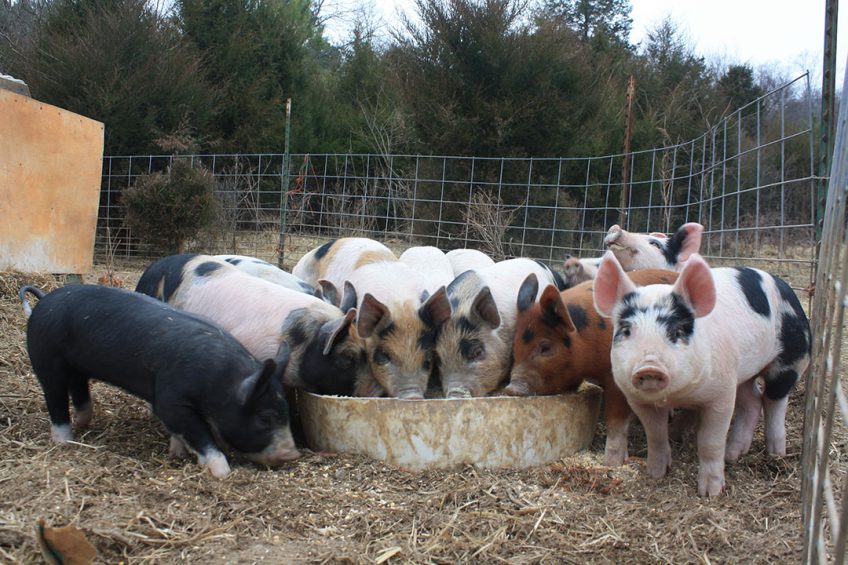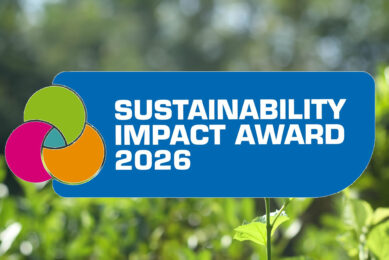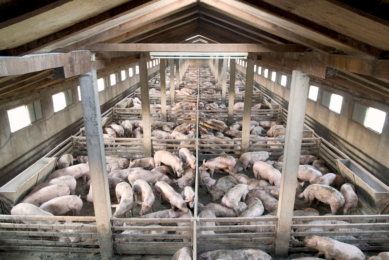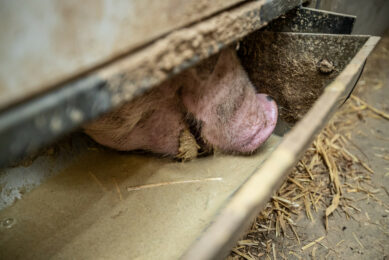4 tips on how to feed pigs sustainably and profitably

“What is not cool today may become the next norm of tomorrow” – wise words by pig nutrition technology expert Dr Casey Bradley this month. Things are in constant motion. With sustainability becoming one of those next norms, it’s good to wonder what pork producers themselves can do to meet that norm.
If there is one thing that we all need to be prepared for it is change. My life is no exception to this.
Growing up in rural America on a farm we were the poster child of sustainability. We grew the majority of our own food. We preserved our food through canning or freezing. We ate the animals we raised and/or hunted and fished. My grandma and aunt use to make a lot of my dresses as well. Instead of buying new boots we used plastic bread bags to keep our feet dry. My grandma’s version of Tupperware was a used Cool Whip or Cottage Cheese container. Having lunch at McDonald’s was a special treat and I thought I was the coolest kid for having my birthday party there.
Fast forward 30+ years and life are different for me and everyone else. Sometimes I wonder if it is for the better?
Ever-mounting challenges for pork producers
Today as swine producers we face ever mounting challenges through regulations, consumer demands, and our growing population. We have made such great progress in the areas of genetics, nutrition, housing, health, and management, but is it enough to stay competitive.
What are some sustainable opportunities that can also be profitable?
![]() Enzymes – can you utilise more of your ingredients to support the production needs of your animals. If cost is of concern take a minimal nutrient matrix to offset the cost and still potentially have the opportunity to maximise performance.
Enzymes – can you utilise more of your ingredients to support the production needs of your animals. If cost is of concern take a minimal nutrient matrix to offset the cost and still potentially have the opportunity to maximise performance.
![]() Reduce minerals in your diets when possible. High levels of zinc and copper have been used for growth performance in the past, but they require mining and the emissions associated with these processes. Can you maintain performance with other alternatives that potentially have less LCA impacts, potentially yes, but limited models are available.
Reduce minerals in your diets when possible. High levels of zinc and copper have been used for growth performance in the past, but they require mining and the emissions associated with these processes. Can you maintain performance with other alternatives that potentially have less LCA impacts, potentially yes, but limited models are available.
![]() By-product utilisation. If you have access to local by-products this could be a win-win for sustainability. Then if you consider fermentation or liquid feeding this gives you another dimension of supporting sustainability into profit as sometimes the only cost is the transportation of the product to your farm. Someday I need share my ‘Pond Scum’ story.
By-product utilisation. If you have access to local by-products this could be a win-win for sustainability. Then if you consider fermentation or liquid feeding this gives you another dimension of supporting sustainability into profit as sometimes the only cost is the transportation of the product to your farm. Someday I need share my ‘Pond Scum’ story.
![]() Technology. Change and new gadgets can feel intimidating and costly, but really understanding what you can trim out of your labour needs or the opportunity to market more pigs with less inputs should be seen as a great opportunity. If I never have to weigh a 115+ kg market hog again… it will be a great day in my world.
Technology. Change and new gadgets can feel intimidating and costly, but really understanding what you can trim out of your labour needs or the opportunity to market more pigs with less inputs should be seen as a great opportunity. If I never have to weigh a 115+ kg market hog again… it will be a great day in my world.

Pig Progress experts talk
To read more Pig Progress expert opinions
Helping pork producers to remain sustainable
What changes are you considering for your system? As for me, my new role was a result of a change in business needs, which is just the change I needed. My career objective has always been to help the pork producers remain sustainable and that’s what I plan to do. I have a lot of great ideas left in me and I hope you, my readers, continue to support my endeavours.
But remember what is not cool today may become the next norm of tomorrow and do you have the desire to pave the way for positive and sustainable change?











